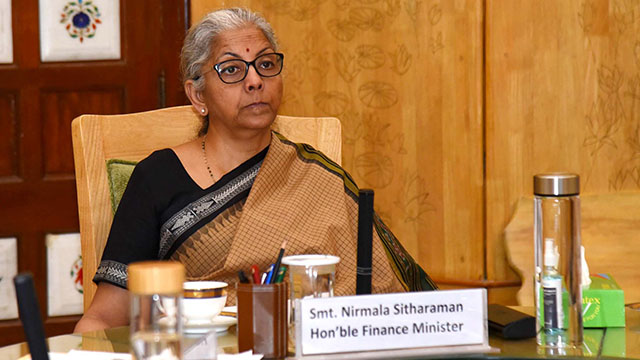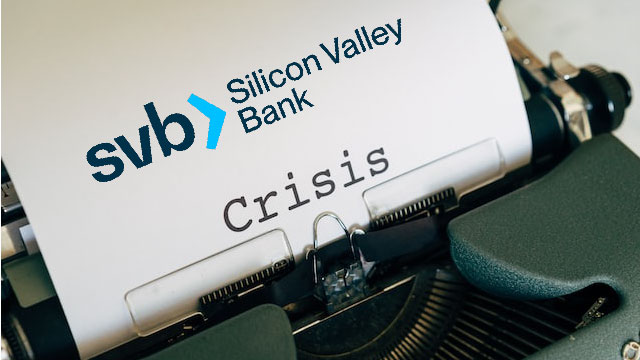Union Ministry of Finance has ordered all Indian public sector banks (PSBs) to closely monitor and plan for guaranteed shares of businesses by incorporating market data, as well as control total exposure to such companies so they can take prompt action during exigencies.
Union Finance Minister Nirmala Sitharaman gave the directive at a meeting presided by her to assess the performance of the PSBs on different financial health yardsticks on Saturday, March 25th. The meeting also assessed the resilience of Indian PSBs in the face of a global financial crisis triggered by the collapse of western banking giants like the Silicon Valley Bank and Credit Suisse.
Sitharaman reportedly gave PSBs instructions to intensify their portfolio stress testing at the micro-cluster level. Such stress tests, as per the Union Ministry of Finance, would be helpful for the PSBs to take into account the threat posed by interest rates.
It’s noteworthy that the SVB collapsed due to an asset-liability mismatch. It’s reported that the US-based SVB’s assets were trapped in long-term held-to-maturity (HTM) bonds. When there was an increase in withdrawals by clients, the bank collapsed like a house of cards.
The finance minister is under due stress due to the near capsizing of Gautam Adani’s port-to-power conglomerate Adani Enterprises Limited’s market capitalisation. The capitalist, accused of inflating the prices of his conglomerate’s shares using stock market manipulation, has also seen a rapid decline in his personal wealth.
It’s alleged by the Opposition, especially by recently disqualified member of the Parliament (MP) Rahul Gandhi of the Indian National Congress that the ruling Bharatiya Janata Party (BJP) and Prime Minister Narendra Modi have close, obnoxious ties with Adani. Though the BJP has denied any association between it and the conglomerate, the prime minister has maintained a conspicuous silence on the issue.
It has been alleged by the Opposition and different others that several PSBs, apparently under pressure from the Union Ministry of Finance, have provided huge amounts of credit to Adani’s companies against stocks. It’s alleged that the prices of those stocks were artificially inflated by the conglomerate, which exposes the PSBs to a greater peril of all times.
Sitharaman, in a bid to exhibit her confidence, underscored her faith in the resilience of PSBs due to their strong regulatory structure, diversified deposits, and liquidity situation that is well above statutory standards.
It has been claimed by the Union Ministry of Finance that the PSBs have far higher liquidity positions than the benchmark set by the law. Per Indian financial rules, the scheduled commercial banks and non-banking financial service providers must comply with liquidity coverage ratio and net stable financing ratio, completely contrary to the SVB’s fiasco.
Sitharaman instructed the PSBs to prioritise the high-quality current accounts-savings accounts (CASA) purchasing and retention. She asked them to avoid bulk and deposit certificates. The CASA scenario has been quite precarious for PSBs, as their market share has been nosediving.
While the PSBs had a 70% CASA market share in the financial year (FY) 2013-14, it dropped to 58% in FY 2021-22. This happened at a time when the total CASA market share of the Indian banking industry rose to 45% in FY 2021-22 from 34% in FY 2013-14.
For efficiency in interest rate transfer and increased risk-based pricing models’ usage, the PSBs were told to increase the proportion of external benchmark-based loan rate-linked advances.
The Union Ministry of Finance reportedly also gave PSBs instructions to develop a crisis management playbook to control stories in the event of a crisis and concentrate on battling false information and rumours spread via social media and WhatsApp.
Due to increased provisioning, Sitharaman’s ministry anticipates that Indian PSB income will decline in FY 2023–24. The ministry anticipates that the profitability forecast for Indian banks in FY 2023-24 will be moderate to weak, even in the most conservative case situation where there is a prolonged increase in inflation and a following rise in policy rates of 25 basis points or above.
However, despite the weakness exhibited by the PSBs, the overall Indian banking industry has a good profitability forecast for the current FY, with prolonged high credit growth, a continuation of fee revenue growth and a downward trajectory of credit costs in the base case situation, when inflation and interest rates are stable.



